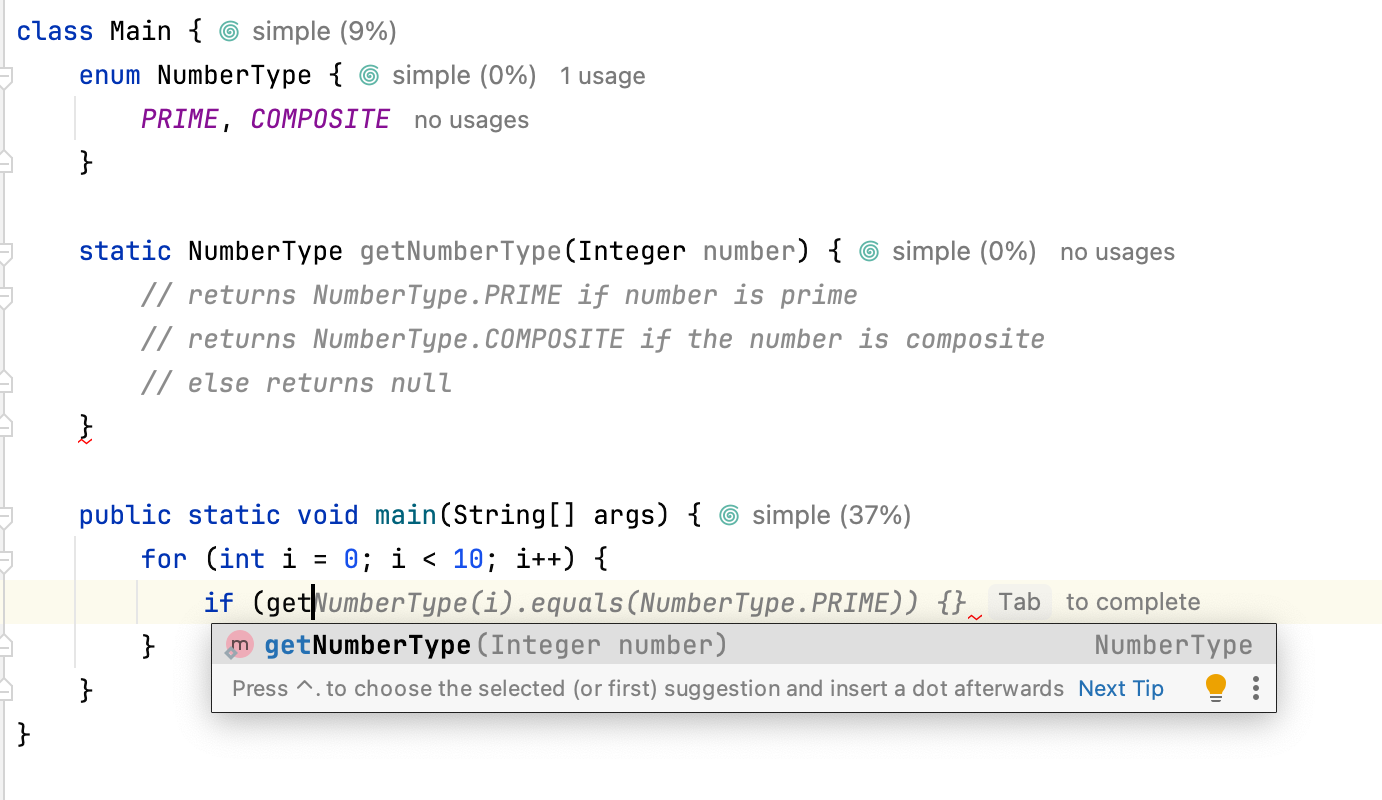Java Shot #2: Prefer using equality operator over equals() method for enums

Enums are a powerful datatype in Java. There are many instances where you want to compare two enums. Given that a enum class supports equals() method, we end up using equals() method as it's frequently used for other object comparisons.

In case of enums, using == (equality) operator is a best practice.
Why? Let's look at the below code.
class Main {
enum NumberType {
PRIME,
COMPOSITE
}
// returns NumberType.PRIME if number is prime
// returns NumberType.COMPOSITE if the number is composite
// else returns null
//
// This method is buggy since this doesn't have any validations on the numbers.
// You can consider this method you are using from an external library.
static NumberType getNumberType(Integer number) {
// function logic for prime and composite numbers.
return null;
}
public static void main(String[] args) {
for (int i = 0; i < 10; i++) {
// 0 and 1 and negative numbers cannot be categorised into prime or composite and hence it
// leads to
// NullPointerException when using equals() method.
if (getNumberType(i).equals(NumberType.PRIME)) {
System.out.printf("%d is composite", i);
} else if (getNumberType(i).equals(NumberType.COMPOSITE)) {
System.out.printf("%d is composite", i);
} else {
System.out.printf("%d is neither prime nor composite", i);
}
}
}
}
If you execute this program, this will throw NullPointerException (NPE).
This can be easily avoided by making use of == operator.
class Main {
enum NumberType {
PRIME,
COMPOSITE
}
// returns NumberType.PRIME if number is prime
// returns NumberType.COMPOSITE if the number is composite
// else returns null
//
// This method is buggy since this doesn't have any validations on the numbers.
// You can consider this method you are using from an external library.
static NumberType getNumberType(Integer number) {
// function logic for prime and composite numbers.
return null;
}
public static void main(String[] args) {
for (int i = 0; i < 10; i++) {
// 0 and 1 and negative numbers cannot be categorised into prime or composite and hence it
// leads to
// NullPointerException when using equals() method.
if (getNumberType(i) == NumberType.PRIME) {
System.out.printf("%d is composite\n", i);
} else if (getNumberType(i) == NumberType.COMPOSITE) {
System.out.printf("%d is composite\n", i);
} else {
System.out.printf("%d is neither prime nor composite\n", i);
}
}
}
}
Why this works? For the simple reason that Enum values are singletons and they have a single reference, == works for them.
There is also a different way you can avoid NPE when using equals() method.
Can you guess the approach?
